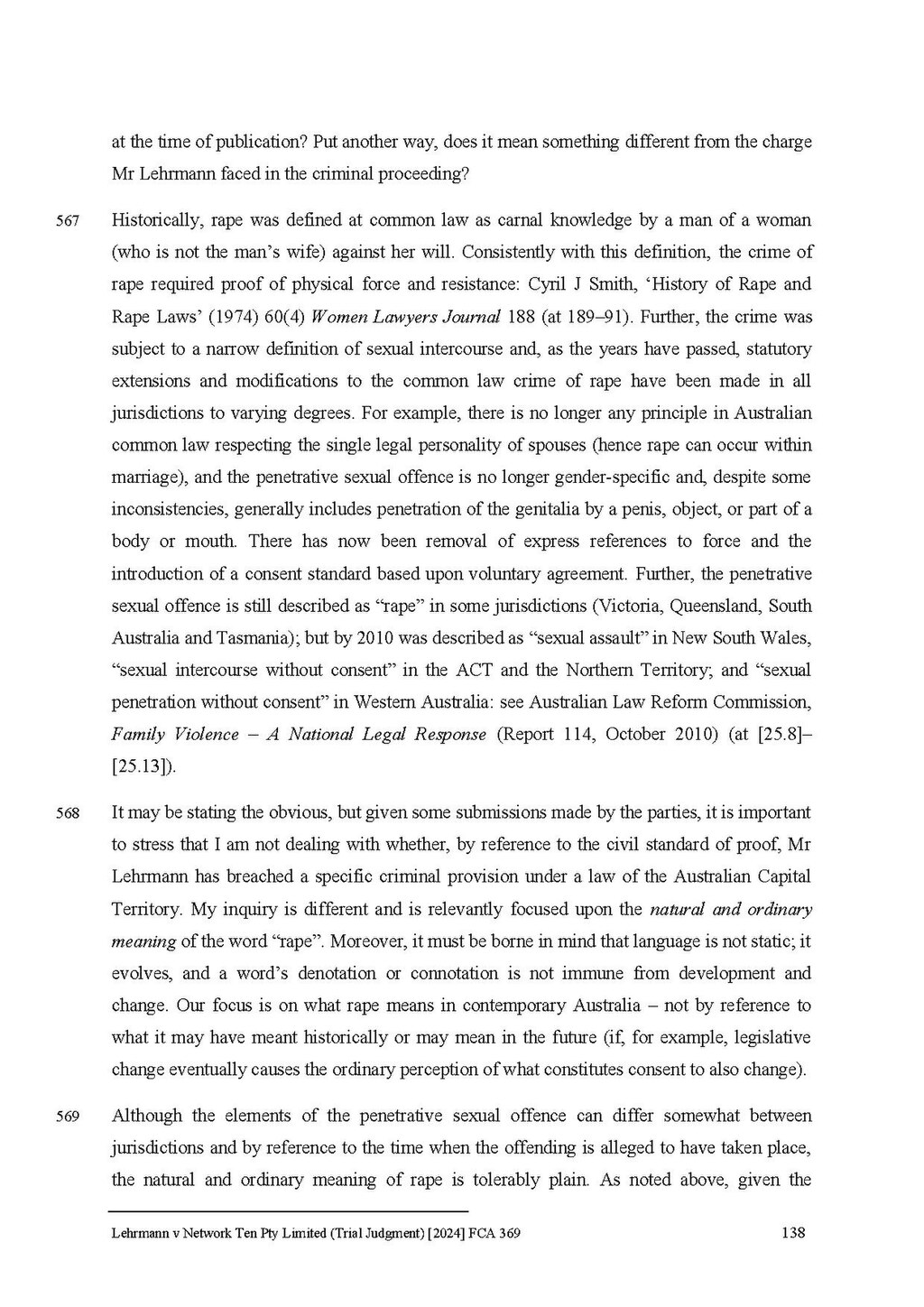at the time of publication? Put another way, does it mean something different from the charge Mr Lehrmann faced in the criminal proceeding?
567 Historically, rape was defined at common law as carnal knowledge by a man of a woman (who is not the man's wife) against her will. Consistently with this definition, the crime of rape required proof of physical force and resistance: Cyril J Smith, 'History of Rape and Rape Laws' (1974) 60(4) Women Lawyers Journal 188 (at 189–91). Further, the crime was subject to a narrow definition of sexual intercourse and, as the years have passed, statutory extensions and modifications to the common law crime of rape have been made in all jurisdictions to varying degrees. For example, there is no longer any principle in Australian common law respecting the single legal personality of spouses (hence rape can occur within marriage), and the penetrative sexual offence is no longer gender-specific and, despite some inconsistencies, generally includes penetration of the genitalia by a penis, object, or part of a body or mouth. There has now been removal of express references to force and the introduction of a consent standard based upon voluntary agreement. Further, the penetrative sexual offence is still described as "rape" in some jurisdictions (Victoria, Queensland, South Australia and Tasmania); but by 2010 was described as "sexual assault" in New South Wales, "sexual intercourse without consent" in the ACT and the Northern Territory; and "sexual penetration without consent" in Western Australia: see Australian Law Reform Commission, Family Violence – A National Legal Response (Report 114, October 2010) (at [25.8]–[25.13]).
568 It may be stating the obvious, but given some submissions made by the parties, it is important to stress that I am not dealing with whether, by reference to the civil standard of proof, Mr Lehrmann has breached a specific criminal provision under a law of the Australian Capital Territory. My inquiry is different and is relevantly focused upon the natural and ordinary meaning of the word "rape". Moreover, it must be borne in mind that language is not static; it evolves, and a word's denotation or connotation is not immune from development and change. Our focus is on what rape means in contemporary Australia – not by reference to what it may have meant historically or may mean in the future (if, for example, legislative change eventually causes the ordinary perception of what constitutes consent to also change).
569 Although the elements of the penetrative sexual offence can differ somewhat between jurisdictions and by reference to the time when the offending is alleged to have taken place, the natural and ordinary meaning of rape is tolerably plain. As noted above, given the
